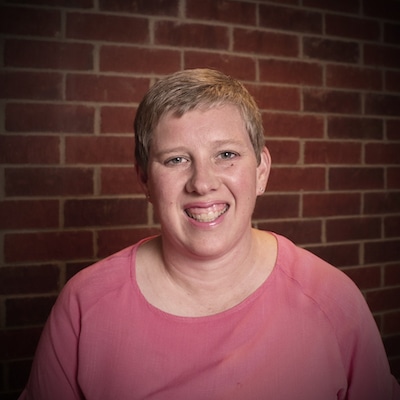by Sally Millsap
The word “deacon” comes from the Greek word Diakonos, meaning servant. In the United Methodist Church, deacons are specifically called to “word, service, compassion, and justice.” Deacons are often described as outwardly-focused and mission-minded, as they are the connection between the church and the world. The Book of Discipline defines the role of deacon as one who “embodies the interrelationship between worship gathered in community and service in the world.” The role of the deacon in the United Methodist Church is calling and equipping the church for its mission of transforming the world. While deacons serve in a critical role connecting the church and the world, deacons are often perceived as second-class clergy because they are not a part of the itinerant system and do not have sacramental authority.
In the lead-up to the 2022 General Conference and the likely impending schism, we as United Methodists have an opportunity to again redefine the role of the deacon. Deacons should be given the authority to administer the sacraments of communion and baptism within specific parameters of their ministry in the local church and the community where they serve. Not allowing deacons to have sacramental authority disproportionately affects women serving in ministry because women make up the majority of those ordained to the Order of Deacon.
As the role of the church changes in society, the role of deacons is going to be more critical in sharing the love of Jesus Christ with the world. Fewer people are entering the doors of church, yet deacons are in their communities serving and making connections with vulnerable people. Many deacons are appointed to connectional ministries such as campus ministries including Wesley Foundations where the future leaders of the church are discerning their call. Deacons are on the front lines in our communities living out our baptismal call to “resist evil, injustice, and oppression,” but can’t offer the hope found in the sacrament of communion and baptism. The Order of the Deacon is relatively new in the United Methodist Church, having been formed at the 1996 General Conference. Clarity was given to the role of the ordained deacon at the 2012 General Conference adding the distinct ministries of compassion and justice for deacons in the Book of Discipline.
While the Order of the Deacon within the UMC is 25 years old, the role of deacons within the larger church was established as early as the Council of Nicaea in 325 CE to be a liturgical role serving under the authority of a priest. Later, the role of the deacon became a stepping stone for persons working towards the role of apprentice priest and eventually priest. Because deacons served with priests, there was no need for them to have sacramental authority and they were often in the process of training towards having that role later in their career.
Historically, ministries that served outside the walls of the church working with the marginalized and suffering often fell to women. Since women were unable to be ordained in the United Methodist Church until 1956, women serving in ministry formed their own organizations including deaconesses to legitimize their role in the church which included serving their communities. Without the ability to be ordained, women were unable to have sacramental authority. Since 1956, the number of women ordained has steadily increased to 27% of all ordained clergy in 2014.1 As of 2018, deacons make up only 5% of the total clergy including licensed local pastors, yet women comprise 76.5% of the Order of the Deacon.2
With this high of a percentage of women in one role of clergy, I think we should ponder whether not granting deacons sacramental authority may well be a systematic form of discrimination against women within the fabric of the United Methodist Book of Discipline. As we think about the mission of the United Methodist Church to make disciples of Jesus Christ for the transformation of the world, I think deacons are uniquely positioned for this work of transformation and the ability to offer the sacraments will only enhance a deacon’s ability to live into their call to offer compassion and justice to a hurting and broken world.
Sally Millsap currently serves as the Minister of Disciples in Action at First United Methodist Church, Murfreesboro. In 2019 after 20 years in the education field, she felt God calling her into full time ministry. She is a Master of Divinity student at Memphis Theological Seminary. Sally is working towards ordination as a Deacon in the United Methodist Church.
